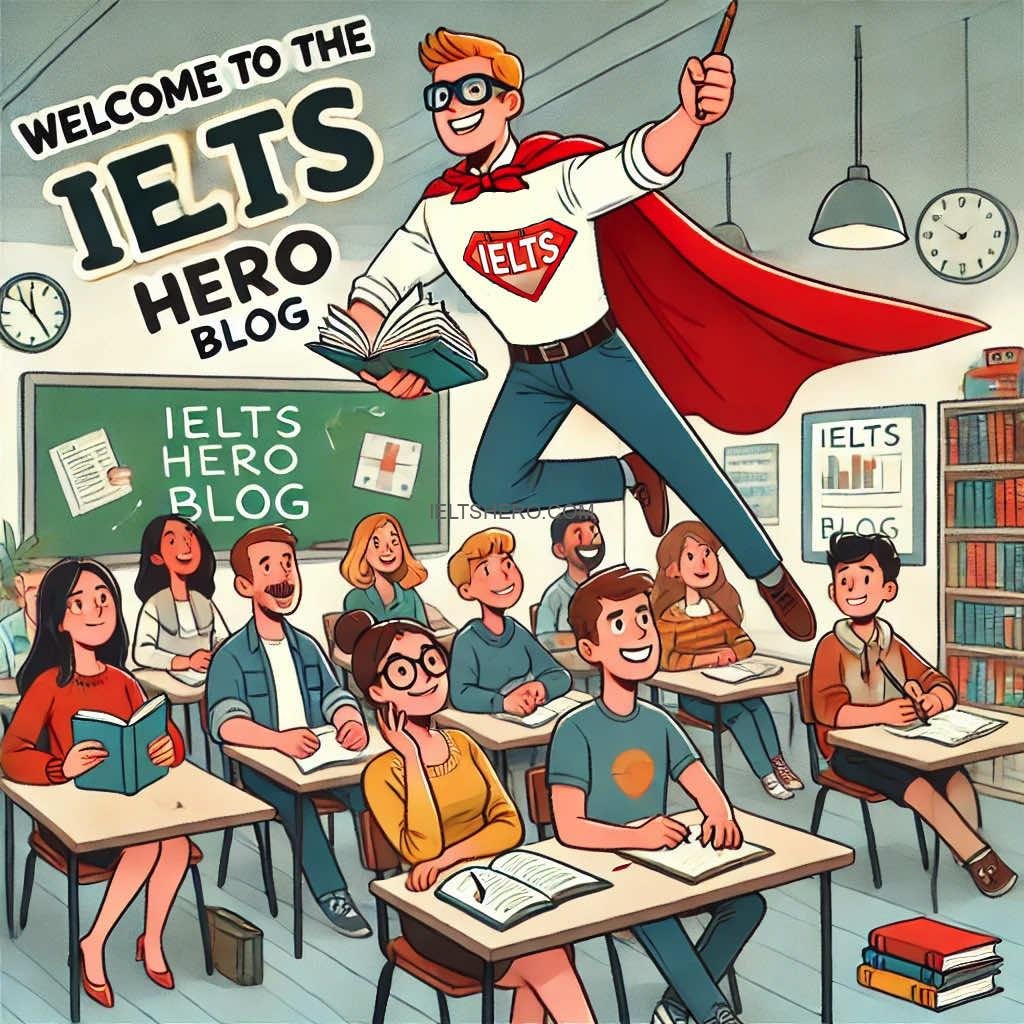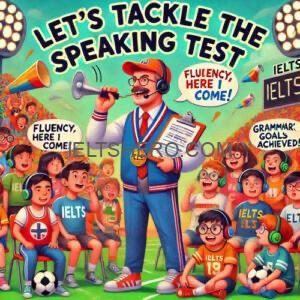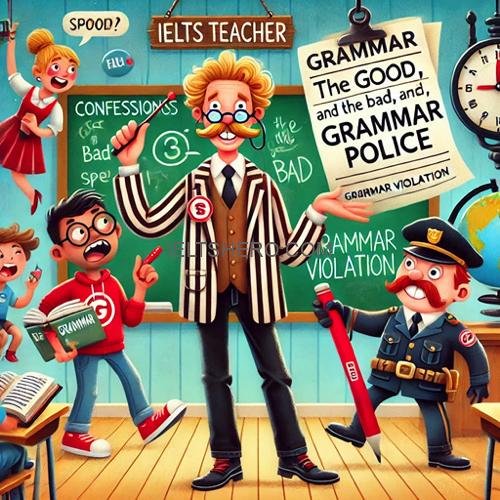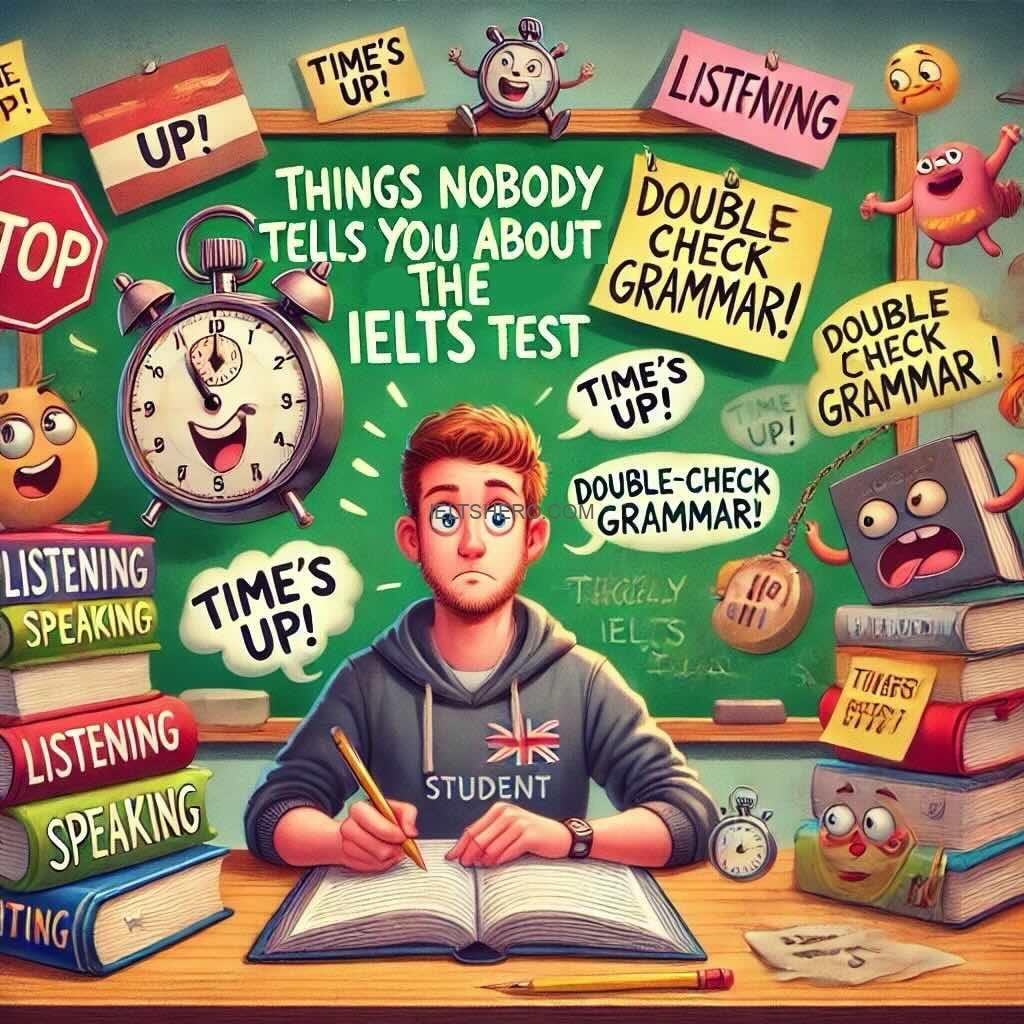Hello again, dear readers! 🎉
We’re back with another wonderfully amazing blog post, and this one is going to be a little… introspective. You see, today we’re peeling back the curtain on what it’s like to be an IELTS teacher. That’s right – this blog is all about the strange, wonderful, and occasionally hair-pulling experience of helping students conquer the ultimate English exam.
Think of it as an inside look at the person on the other side of your test prep journey. Spoiler alert: we’re rooting for you more than your mom does on karaoke night. 🎤💖
1. The Ultimate Balancing Act
Teaching IELTS is like juggling flaming bowling pins while riding a unicycle. Why? Because every student is at a different level, with different goals, and – let’s face it – different levels of willingness to actually do homework.
One student might ask, “How can I increase my coherence and cohesion score in Writing Task 2?” while another says, “Teacher, what is ‘coherence’?” And there I am, switching between Band 9 tips and Band 4 basics like a linguistic acrobat. 🎪
2. The Grammar Olympics
Ah, grammar. It’s both the love of my life and the bane of my existence. Teaching IELTS means constantly spotting things like:
- “He don’t have a car.” (Cue: quick explanation about auxiliary verbs.)
- “They was going to the market.” (Deep breath. Start the subject-verb agreement lesson… again.)
It’s a bit like being a coach for the Grammar Olympics – cheering students on as they hurdle over verb tenses and dodge rogue apostrophes. And when a student nails a conditional sentence? Pure gold medal moment. 🏅
3. The Speaking Test Soap Opera
You know those dramatic reality shows where contestants face intense challenges and someone inevitably cries? That’s what the Speaking test feels like – but in slow motion.
Some students breeze through Part 1, chatting about their hometown like they’re running for mayor. Then, Part 2 arrives with “Describe a time you got lost,” and suddenly, it’s like they’ve forgotten how to talk. (Pro tip: Don’t actually get lost in your answer!)
And then there are the students who go rogue:
Examiner: “Do you like animals?”
Student: “Yes. Animals are nice. I think aliens also like animals.”
Me, silently screaming: “WHY DID YOU BRING UP ALIENS?!” 👽
4. Writing Task 2: The Battlefield of Opinions
If the IELTS were a war, Writing Task 2 would be the battlefield. Students march in with their opinions and strategies, ready to tackle topics like environmental issues, education, and whether robots will take over the world.
Some essays are masterpieces. Others… let’s just say they’re “works in progress.” My job? To turn “Technology good. More computers gooder.” into “Advancements in technology have significantly improved modern life, particularly through the widespread use of computers.”
It’s not easy, but when a student finally masters complex sentences, I want to frame their essay and hang it on my wall.
5. The “Vocab or Bust” Dilemma
IELTS students have a love-hate relationship with vocabulary. They know it’s the key to higher scores, but sometimes their choices are, um, creative.
Example 1:
Student: “The weather was very ameliorative yesterday.”
Me: “Did you mean… ‘nice’?”
Example 2:
Student: “Global warming is a big cataclysm. We need more afforestation and deforestation to stop it.”
Me: “Oh no. No, no, no. Let’s unpack that…”
Vocabulary is like seasoning – a little goes a long way. But try telling that to the student who discovers the word “paradigm” and decides to use it in every sentence.
6. The Reading Test Puzzle
From a teacher’s perspective, the Reading test is where students show their true detective skills. Some are Sherlock Holmes, piecing together answers with logic and precision. Others are more like… Scooby-Doo, solving mysteries but also getting distracted by snacks. 🍪
My advice is always the same: READ THE QUESTIONS FIRST. Do they listen? About 50% of the time. The other half flip straight to the passage, get lost in paragraphs about obscure animal species, and then panic when time runs out.
7. The Listening Test Drama
Listening is a rollercoaster for both students and teachers. One minute, you’re cruising along with “The meeting is at 3:00 p.m.” The next, it’s “The meeting was originally at 2:30 p.m., then changed to 3:15 p.m., and finally settled at 3:00 p.m.”
Students either:
a) Nail it like pros.
b) Write down every number they hear and hope for the best.
Teaching them to stay calm and focused is a journey – but when they finally get it, it’s like watching someone conquer their fear of heights on a rollercoaster. 🎢
8. The Joy of Watching Students Succeed
Despite all the grammar corrections, essay rewrites, and “Why aliens?” moments, being an IELTS teacher is one of the most rewarding jobs out there. Watching a student hit their target band score and achieve their dreams is like watching your favorite underdog win the big game. It’s pure joy.
And when a student says, “Thank you, teacher – I couldn’t have done it without you,” I feel like a rockstar. Or at least, like someone who just aced their own Band 9.
Final Thoughts
So, there you have it – a peek into the life of an IELTS teacher. It’s messy, hilarious, and occasionally stressful, but above all, it’s incredibly fulfilling. To all my students (past, present, and future): thank you for keeping me on my toes and reminding me that English is as wonderfully weird as it is exciting.
And to all you IELTS hopefuls reading this: keep going. You’ve got this. And remember – if your teacher is smiling while correcting your essay, it’s not because of your mistakes. It’s because they believe in you.
Until next time, keep rocking those practice tests and avoid mentioning aliens in your Speaking test!
Your IELTS guide (and occasional grammar therapist). 🎤



